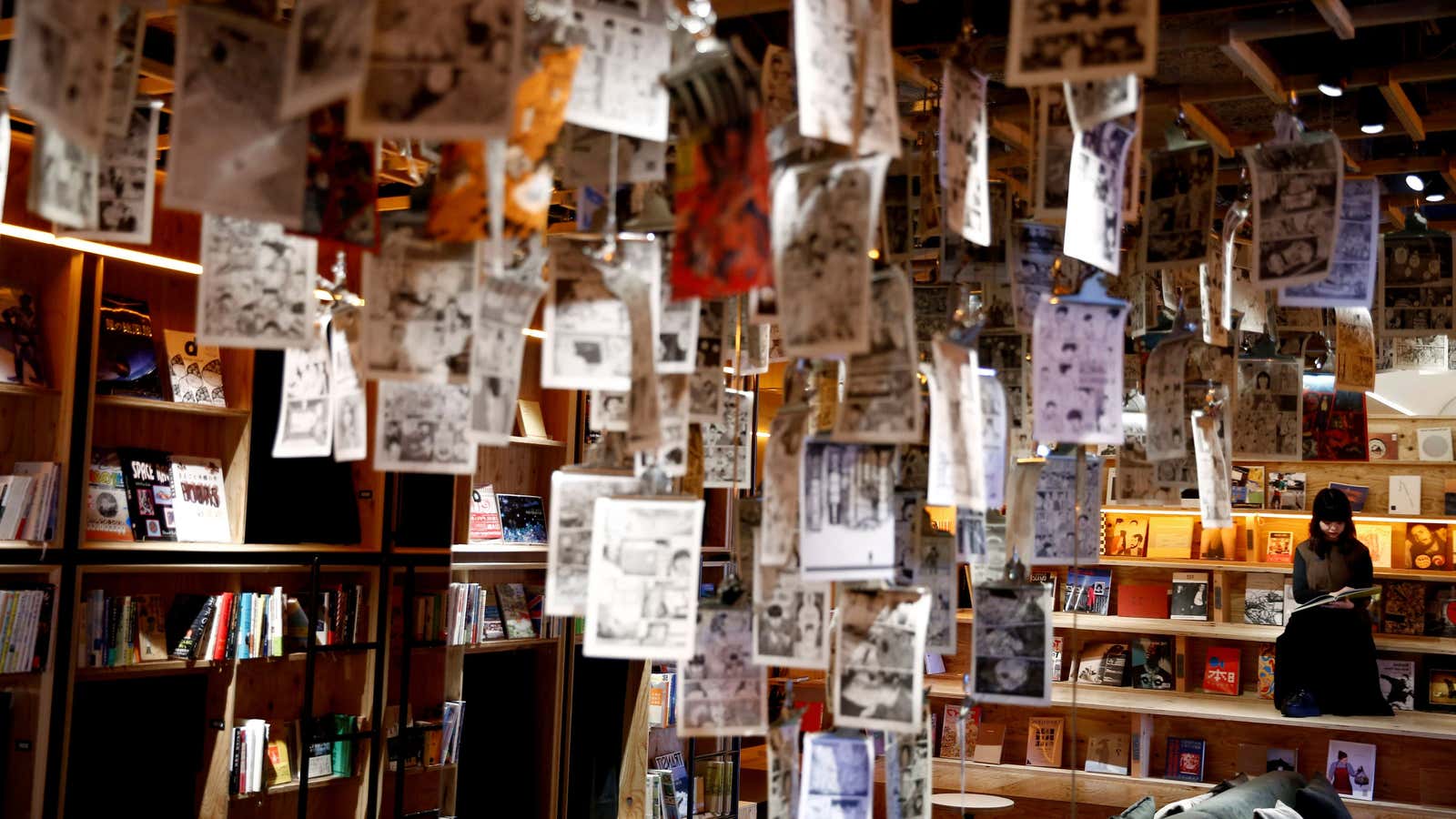According to the judges of the 2019 Man Booker International Prize, “the finest works of translated fiction from around the world” in the past year were mainly written by women.
The Man Booker International Prize is awarded every year to the judges’ choice for the best book written in a language other than English, then translated into English and published in Britain or Ireland. The award’s judging panel chose six finalists this evening (April 9) from the longlist of 13 books, with six weeks to go until the 2019 winner is announced. All but one of the shortlisted books were written by, and all six books were translated by, women.
Among the finalists, five languages—Arabic, French, German, Polish and Spanish—as well as five countries and three continents are represented. Five of the six submissions came from smaller publishing houses, including two books from Fitzcarraldo Editions, the publisher of last year’s winner.
“Wisdom in all its forms is here,” said Bettany Hughes, the chair of this year’s judging panel, in a press release. “Unexpected and unpredictable narratives compelled us to choose this vigorous shortlist. Subversive and intellectually ambitious with welcome flashes of wit, each book nourishes creative conversation. We were struck by the lucidity and supple strength of all the translations.”
Here are the six books shortlisted for the award:
Celestial Bodies by Jokha Alharthi
Celestial Bodies tells the story of three sisters from the al-Awafi village in Oman who see the country “evolve from a traditional, slave-owning society slowly redefining itself after the colonial era, to the crossroads of its complex present,” according to its publisher Sandstone Press. It was translated from Arabic by Marilyn Booth.
The Years
by Annie Ernaux
The English translation of this unusual autobiography, translated from its original French by Alison Strayer, ”traces the collapse of Catholic prudishness as it’s attacked by secularism, the pill, the legalization of abortion and the women’s movement,” and also chronicles “how we’ve been gradually led, guilt-free, into greater and greater levels of consumerism,” according to The New York Times (paywall).
The Pine Islands
by Marion Poschmann
The German original traces the story of two men, linked by an unusual bond, who, together, trace the footsteps of the great Japanese poet Matsuo Basho’s journey to see the moon rise over the pine islands of Matsushima. It was translated into English by Jen Calleja.
Drive Your Plow Over the Bones of The Dead
by Olga Tokarczuk
If Tokarczuk’s book takes this year’s Man Booker International Prize, it could give the author the the unusual distinction of winning in back-to-back years, since Tokarczuk was awarded last year’s prize for her novel Flights. (The Man Booker International Prize has only been around since 2016, but in the nearly 50 years of the Man Booker English Prize, there have been only three repeat winners.) Drive Your Plow is a murder mystery in which an eccentric recluse in a remote Polish village becomes embroiled in the investigation into the deaths of members of a local hunting club. The book was controversial (paywall) in Poland for touching on themes of Catholicism and environmentalism, and was translated from Polish by Antonia Lloyd-Jones.
The Shape of The Ruins
by Juan Gabriel Vásquez
The only finalist with a male author, this novel is a story of political and literary investigation. It dives deep into two politically-motivated assassinations and “reveals how between them they contain the seeds of the violence that has bedeviled Colombia ever since,” according to its publisher, MacLehose Press. It was translated from Spanish by Anne McLean.
The Remainder
by Alia Trabucco Zerán
The Remainder was translated from Spanish by Sophie Hughes. It tells the story of Felipe, Iquela, and Paloma, three friends in Santiago, Chile who go on a road trip and “end up confronting generations of family pain and the legacy of Chile’s dictatorship” according to The New York Times (paywall).
The judging panel was made up of Bettany Hughes, an author and historian; Maureen Freely, chair of English PEN, a worldwide writers’ association that promotes literature and writers’ rights around the world; Angie Hobbs, a philosopher; Pankaj Mishra, a journalist and author; and Elnathan John, a novelist and satirist.
The writer-translator pair awarded the top prize will split £50,000 ($65,415), and is almost certain to benefit from a boom in book sales. Each one of the shortlisted authors and translators will also receive £1,000 ($1,308).
